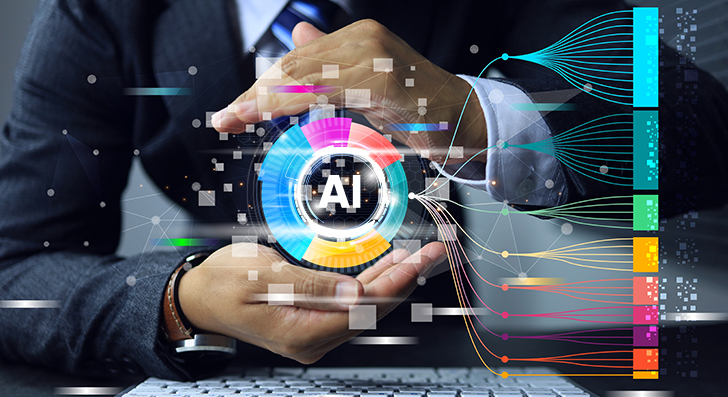Climate change deals with the global phenomenon of climate transformation that significantly impacts the earth's usual climatic conditions (temperature, precipitation, wind, etc.). They are mainly caused due to human-made activities. Still, many people were unaware of the actual impacts of climate change, and they greatly enhance its risk through their day to day activities. The major source of climate change is global warming, which is primarily caused by the greenhouse effect.
The emission of greenhouse gases from everyday human activities results in an unprecedented rise in earth temperature, and it is predicted to nurture even more in the future if left unaddressed. Rapid urbanization and industrial revolution are the other main causes that lead to the risk of climate change with increased energy demand and production, especially in the form of fossil fuels. The growing risk of climate change has a disastrous impact on earth organisms, including human beings and earth's flora and fauna. It further leads to the destruction of the food chain and economic resources.
The impacts will be more crucial in developing and under-developed countries in comparison to the developed countries. While there exist possible literature to adapt to mitigate the impacts of climate change, these may become ineffective and obsolete over time as the severity may increase. Hence finding more advanced ways to predict, analyze, monitor, and mitigate climate change impacts has become crucially unavoidable.
Artificial Intelligence (AI) is a disruptive paradigm that has greater potential to assess, predict, and mitigate the risk of climate change with efficient use of data, learning algorithms, and sensing devices. It performs a calculation, makes predictions, and take decisions to mitigate the impacts of climate change. By developing effective models for weather forecasting and environmental monitoring, AI makes us better understand the impacts of climate change across various geographical locations.
It interprets climatic data and predicts weather events, extreme climate conditions, and other socio-economic impacts of climate change and precipitation. From a technical perspective, AI offers better climatic predictions, shows the impacts of extreme weather, finds the actual source of carbon emitters and includes numerous other reasonable contributions. This enables the policymakers to be aware of the rising sea levels, earth hazards, hurricanes, temperature change, disruption to natural habitats, and species extinction. Nevertheless, the research community and experts have already started focusing on climate informatics with AI paradigms.
The predictive models are more appropriate to short-term forecasting models and diverge from the long-term prediction, assessment, and mitigation. To get the maximum benefit from AI for climate change mitigation, more advanced researches are necessitated towards this domain.
Artificial Intelligence (AI) is a disruptive paradigm that has greater potential to assess, predict, and mitigate the risk of climate change with efficient use of data, learning algorithms, and sensing devices. It performs a calculation, makes predictions, and take decisions to mitigate the impacts of climate change. By developing effective models for weather forecasting and environmental monitoring, AI makes us better understand the impacts of climate change across various geographical locations.
It interprets climatic data and predicts weather events, extreme climate conditions, and other socio-economic impacts of climate change and precipitation. From a technical perspective, AI offers better climatic predictions, shows the impacts of extreme weather, finds the actual source of carbon emitters and includes numerous other reasonable contributions. This enables the policymakers to be aware of the rising sea levels, earth hazards, hurricanes, temperature change, disruption to natural habitats, and species extinction. Nevertheless, the research community and experts have already started focusing on climate informatics with AI paradigms.
The predictive models are more appropriate to short-term forecasting models and diverge from the long-term prediction, assessment, and mitigation. To get the maximum benefit from AI for climate change mitigation, more advanced researches are necessitated towards this domain.
Monitoring and Predicting Climate Change
One of the primary ways AI is being used in the fight against climate change is through monitoring and predicting its impact. By analyzing data from satellites, weather stations, and other sources, AI can provide real-time information on changing weather patterns and predict future climate changes. This can help communities and authorities to draft effective adaptation and mitigation strategies.
Climate Change Adaptation
Climate change adaptation involves adjusting to the changing climate to reduce its negative impact. AI can aid in this by analyzing data on vulnerabilities and risks associated with climate change and providing suggestions for adaptation strategies. This can help communities better prepare for and withstand the impacts of a changing climate.
Smart Buildings and Energy Efficiency in the Built Environment
The usage of AI in the built environment has unlocked solutions such as ‘smart’ buildings where AI is used to optimize building operations (i.e. heating, ventilation, air-conditioning (HVAC), electrical systems) to reduce energy/water consumption while maintaining comfort for occupants.
AI technology is also used in the area of energy efficiency by analyzing data from buildings, factories, and homes to identify areas for improvement and suggest energy-saving solutions. This not only reduces carbon emissions but also saves costs for individuals and businesses.
Sustainable Agriculture
Agriculture is a significant contributor to greenhouse gas emissions, particularly through land use change and the use of fertilizers. AI can assist in sustainable agriculture by analyzing data on crop yields, soil health, and weather patterns to help farmers make informed decisions. This can lead to more efficient use of resources and reduced emissions.

Early Detection of Forest Fires
As wildfires become more rampant, Berlin-based startup Dryad is using AI to detect small burns before they escalate. With electronic "noses" embedded in forests, AI sensors sniff out specific gases released during combustion. This proactive approach allows for timely extinguishing when fires are still manageable. With 50 installations globally, including Lebanon where sensors reacted within 30 minutes, AI is proving to be a game-changer in firefighting.
In a related case study, Appen’s work in combating wildfires through computer vision automation is a testament to the power of AI in environmental conversation. Through utilizing advanced machine learning applications, Appen’s platform has enabled data scientists to extend themselves and push the edge of the art of the possible.
Preventing Megafires
Beyond detection, AI aids in prevention. By orchestrating "controlled burns" outside fire season, excess vegetation becomes less fuel for megafires. Yolanda Gil from the University of Southern California highlights the crucial role AI plays in providing burn managers with essential information on wind conditions and vegetation moisture levels. It's a strategic approach to curb the intensity of wildfires and safeguard our environment.

Continued Advancements in AI
As technology continues to evolve, so too will its application in combatting climate change. With advancements like machine learning and big data analytics, AI is becoming even more powerful in leveraging the right data and tools to provide insights and comprehensive solutions for climate action. It has the potential to greatly assist us in achieving a sustainable future.
Appen stands firmly in support of initiatives that leverage AI for a sustainable future. In January 2023, Appen signed the United Nations Global Compact (UNGC), joining more than 23,000 companies that have committed to supporting sustainable business practices and to taking ownership of creating a brighter society. The commitment to UNGC is complemented by our pledge to combat climate change and achieve net zero emissions by 2030.
For more information contact : support@mindnotix.com
Mindnotix Software Development Company


 AI-Taxi App
AI-Taxi App AI-Food App
AI-Food App AI-Property Mgmt App
AI-Property Mgmt App AI-CRM
AI-CRM AI-Fantasy App
AI-Fantasy App
 Web Development
Web Development App Development
App Development Business & Startup
Business & Startup Hire Developer
Hire Developer
 Digital Marketing
Digital Marketing Lead-generation
Lead-generation Creative Agency
Creative Agency Branding Agency
Branding Agency Augmented Reality
Augmented Reality Virtual Reality
Virtual Reality Internet of Things
Internet of Things Artificial Intelligence
Artificial Intelligence Blockchain
Blockchain Chatbot
Chatbot



